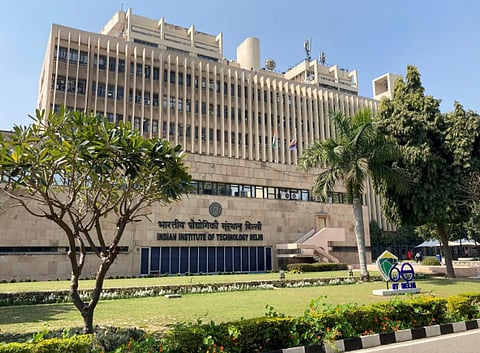

The Indian Institute of Technology (IIT) Delhi successfully conducted the Co-Curricular and Academic Interaction Council (CAIC) elections on Monday, May 5, using an indigenously developed, 'dual voting platform' that combines traditional paper ballots with electronic recording, stated a report by The New Indian Express.
The dual voting platform was conceptualised and designed by a team involving Prof Subodh Sharma, Dr Prashant Agrawal, and Prof Subhashis Banerjee, with engineering led by Prof Sharma and support from Electrical Engineering undergraduates.
Developed and tested at IIT Delhi, the system ensured a smooth, transparent, and tamper-proof electoral process.
Over two days, April 25 and 29, 2025, over 2,000 votes were cast for CAIC elections, with no discrepancy recorded across electronic and paper ballots, validating the robustness and reliability of the newly developed platform.
The voting process was designed to uphold the confidentiality of voters while ensuring transparency, accountability, and ease of access for all participants.The e-voting platform, OpenVoting, introduces a first-of-its-kind dual voting system in India, combining the cryptographic security of end-to-end verifiable electronic voting with the reliability of voter-verified paper records (VVPRs).
Each electronic vote is cryptographically coupled with its corresponding paper ballot, ensuring that any attempt at tampering, whether electronic or physical, is immediately detectable.
This integration prevents attacks that target electronic records or paper ballots, thus securing both tracks of the election process.Starting from a verified electoral roll, Open Voting guarantees protection against vote stuffing, unauthorised vote deletion, and vote manipulation.
Every counted vote is verifiable; discrepancies are localizable to specific polling booths, and voter anonymity remains uncompromised, eliminating the need for full re-elections even if errors occur.
Among the few of its kind globally, this pioneering system sets a new benchmark for secure and transparent digital elections, enabling multiple elections to be conducted simultaneously.
The election process, example, e-voting, garnered praise from Prof Narayanan D Kurur, Dean, Academics at IIT Delhi, who said, "One small step for IIT Delhi, a giant step for Indian citizens."
